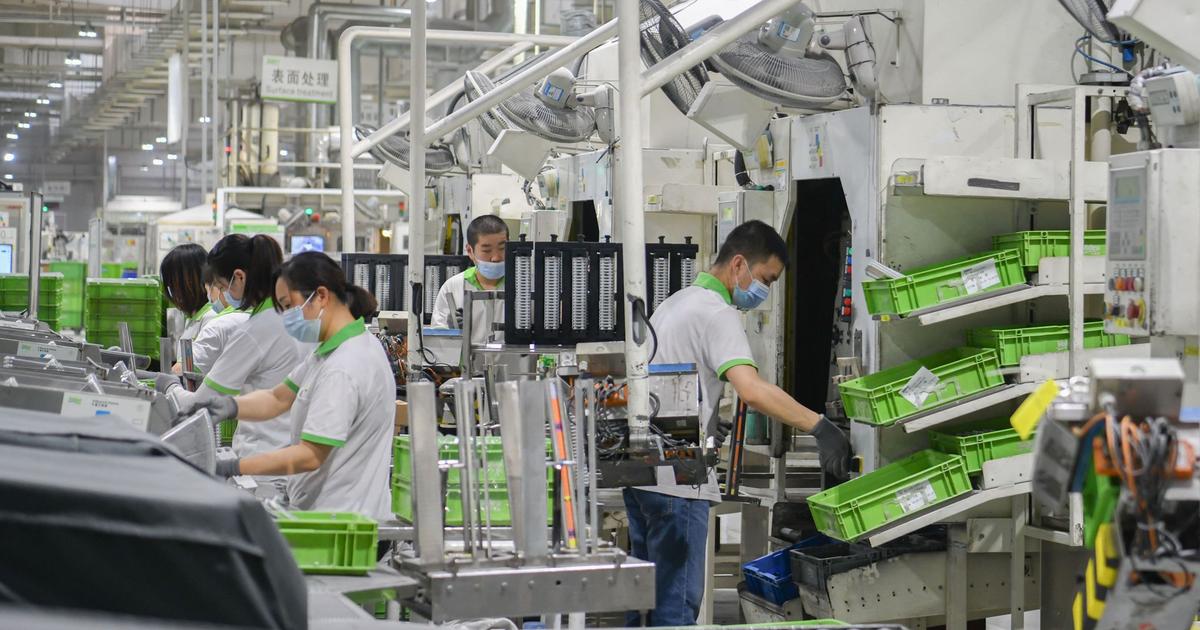Icon: enlarge
Outgoing Conti boss Degenhart: "Like in a crisis script"
Photo: Julian Stratenschulte / dpa
On Thursday evening, shortly after 9 p.m., an era at Continental ended abruptly.
After eleven years in office, the automotive supplier announced in an ad hoc announcement that CEO Elmar Degenhart would step down at the end of November.
Although the 61-year-old's contract is still valid for four years.
The Conti boss named health reasons as the decisive reason: "After having made great efforts to the benefit of our organization", said Degenhart, he now had to "immediately focus on my health precautions.
In fact, the past few months must have been very stressful for Degenhart.
The fact that he was plagued by serious health problems is also confirmed by his critics: under these circumstances, he could no longer cope with such a difficult transformation as Conti is facing.
The Continental boss was recently under attack from all sides.
The shareholders put pressure on because the reorganization of the supplier is not going fast enough for them.
The workers protested when Degenhart announced a job cut.
And in politics, the Conti boss no longer got through with his demand for further state aid - despite his increasingly apocalyptic warnings.
For many suppliers, it is "a matter of bare survival"
The situation of auto suppliers has worsened since the outbreak of the pandemic "like in a crisis script", Degenhart told SPIEGEL in August.
A return to the pre-crisis level is not expected before 2025.
For many suppliers it is "already a matter of bare survival".
The Conti boss described the situation much more gloomy than many other bosses in the auto industry.
Probably also to prepare his employees and shareholders for the difficult years that are still ahead of the supplier.
However, the serious consequences of the corona crisis are only part of the truth.
Large parts of the problems are self-inflicted.
Years of growth made Conti sluggish.
The corona-related economic crisis only reveals what the supplier failed to do in the time before: to systematically convert the group to e-mobility and digitization.
The promised reorganization of the drive division with a possible later IPO is also dragging on longer than planned.
Continental is still a long way from claiming to transform the tire, chassis and brake manufacturer into a software and electronics company.
When it comes to digitally networked, automated driving, the industry leader Bosch has long been stronger, and even smaller competitors like ZF Friedrichshafen have repeatedly stolen lucrative contracts from Conti.
At the same time, new rivals such as the Californian IT provider Nvidia, whose powerful computer technology hardly any car manufacturer can get past, are playing an increasingly important role.
The promising future business with battery technology is in turn dominated by Asian providers such as CATL, Panasonic and Samsung.
A fatal development for the entire location: because the classic car components that Continental offers are coming under increasing price pressure and can hardly be produced competitively in a high-wage location like Germany.
Reducing staff at a rapid pace
These strategic, home-made problems made themselves felt as early as 2018 when the global auto economy cooled - and car manufacturers like Volkswagen simply passed their cost pressure on to their suppliers.
Continental shocked its shareholders with two profit warnings, and the market value eroded.
Degenhart also irritated his top managers with a harsh letter in which he accused them of missing profit targets: "We don't drive a meter on this wrong track", said Degenhart at the time, "this train stops right here and now."
Even then, critics accused Degenhart that he was offloading responsibility.
The misery escalated in the following years.
Conti now has to cut costs in a hurry and cut staff on a massive scale.
There is talk of 30,000 jobs worldwide, entire plants are about to be closed.
Over the years Degenhart has built a reputation as a level-headed, compromise-ready company leader.
The workers valued him.
Shareholders and supervisory board members still credit him today for having restructured and pacified Conti after the Schaeffler family's turbulent entry in 2009.
But even he was ultimately unable to reconcile the various interests.
Politicians like North Rhine-Westphalia's Prime Minister Armin Laschet (CDU) were angry that they were hardly involved in the location decisions.
A promising candidate
For weeks, information leaked through the industry that Degenhart was about to be replaced.
Without the health problems, it is said from those around the Supervisory Board, he would not have resigned so abruptly - even if a succession plan has been in place for some time.
Chairman of the supervisory board Wolfgang Reitzle wants to name a new CEO shortly.
A promising candidate is Nikolai Setzer, 49, who is currently on the board responsible for the automotive business.
A friendly but also brisk guy.
The Supervisory Board believes that he will have the necessary drive to systematically reorganize Continental.
If necessary also against resistance.
Icon: The mirror







